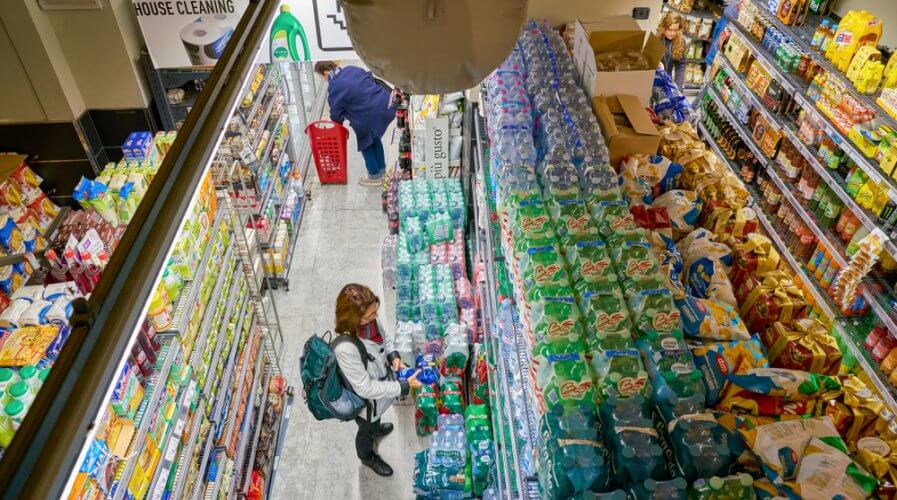
AI-enabled cameras can track and monitor the store racks and shelves to ensure products are always in stock. Source: Shutterstock
How smart cameras can save retailers big money
WITH the rise of e-commerce, the retail industry is undergoing a major technological shift to maintain relevance in the market.
Not only do retailers have to rethink the relevance of existing products but also the delivery to shoppers. As a result, worldwide retail IT spending will increase by 3.6 percent to US$203.6 billion this year according to a new report.
In this digital era, retailers are investing more in technologies to race against productivity hours and to save on spending.
In the long run, the digital climb will be more costly to companies as well as a greater threat to business survival.
Hence retailers are getting started with their journey to incorporating bleeding edge technologies into their operations.
How smart cameras flex their intelligence in retail
Artificial intelligence (AI) and machine learning (ML) can help retail keep things running automatically.
For instance, AI-enabled cameras can track and monitor the store racks and shelves to ensure products are always in stock.
This will ensure sales is always at its optimum when coupled together with a sound enterprise resource planning (ERP) system.
Besides that, smart sensors can also detect the freshness of goods in grocery shops and restaurants so that staffs will know when to replace them.
Having this for fresh goods will help the establishment minimize food wastage.
In the long run, ML can accurately forecast the supply management of each product to ensure resources are fully utilized, allowing smart cameras to become the ultimate conduit to retail automation.
What retail smart cameras need to focus on
Despite the obvious benefits, the use of technology in the retail space is facing mixed reviews.
Skeptics worry about privacy issues, with news relating to data breaches making headlines across the world.
Retailers, therefore, need to emphasize that AI cameras will only be capturing non-personal data — data of products and purchases — instead of shoppers’ identities.
As retail smart cameras focus on the data only, store managers will be able to understand purchases better without biases, allowing them to make more cost-efficient decisions with the support of technology.
The boom in digital platforms did send many retailers to the graveyard but it seems as though technology, such as smart cameras and AI, can also provide the tools to keep the lights on in the face of thriving e-commerce.
READ MORE
- Ethical AI: The renewed importance of safeguarding data and customer privacy in Generative AI applications
- How Japan balances AI-driven opportunities with cybersecurity needs
- Deploying SASE: Benchmarking your approach
- Insurance everywhere all at once: the digital transformation of the APAC insurance industry
- Google parent Alphabet eyes HubSpot: A potential acquisition shaping the future of CRM






